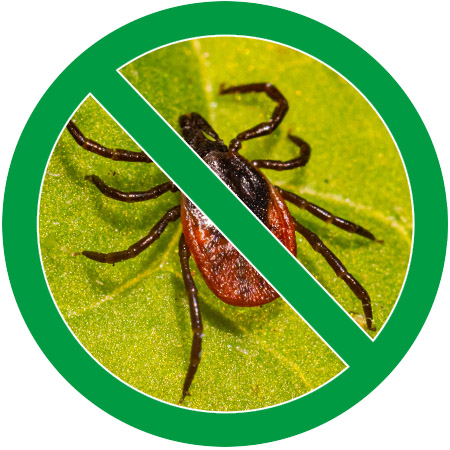Tick Bites and Prevention

You may have already seen articles this year stating that the tick population here in Michigan has already increased beyond “average” levels. Experts seem to agree: there are far more ticks than usual this year, and there are a number of reasons for that. But first, what is a tick, and should you be concerned about them?
General Tick Facts
Ticks are actually arachnids, from the same class as spiders (they’re not proper insects). They have eight legs like spiders, and the ticks here in Michigan range in size from a pinhead to a pencil eraser. They cannot jump; instead, they use a process called “questing” that involves waiting for potential hosts to pass closely by where the tick is hiding and clinging to the first layer of skin. Ticks prefer to live in areas that are both warm and humid (hence why a Michigan summer is perfect for them), and particularly in long grass in the shade, or by standing water.
It’s best to find them before they have latched on if possible, but as long as they are still visible, you can take a pair of tweezers and remove a tick that has already begun to burrow. They will bite with great force, so you might have to pull firmly to get the entire tick out. Avoid twisting the tweezers, because the head or other parts of their body can break off and remain in the skin.
Common indications of tick bites are rashes and swelling around the bite, a burning sensation, and small blisters. Symptoms of tick bites might last a few weeks, but they have been known to carry Lyme Disease (among some other less common diseases), so it is best to get a bite looked at by a professional if you have any concerns.
2021 Michigan Tick Season
Data from years past indicates that cases of tick bites and Lyme Disease both seem to peak in June, so the good news is, the worst is likely over. The bad news is, the heat and humidity of this particular summer will likely extend tick activity well into October. This means there will be ample opportunities for people to get bitten without realizing it. Even if you don’t consider September or October “summer,” it’s still tick season…this year, at least. Consider keeping an eye out for ticks on yourself and any children or pets into the cooler months.
What can I do to protect myself/my animals from ticks?
If you are going on a walk through the woods or through areas with long grass, wear clothing that will cover your legs. Inspect your clothing, arms, legs, and scalp for ticks after being in these areas. You can also prevent ticks by applying tick repellents on yourself or your animals. For dogs and cats, some tick control products can be applied topically while others should be worn on pet collars or ingested. Make sure to talk to a veterinarian before using any oral tick repellent for your pet.
It is also possible to get your yard treated for ticks! If you have a large yard that borders woods or water, you may want to consider a tick treatment or two, if only for peace of mind. Northern Pest has years of experience in handling these pesky arachnids! Don’t hesitate to contact us with anything: give us a 906-553-4841 or use our online contact form.